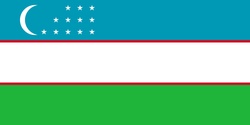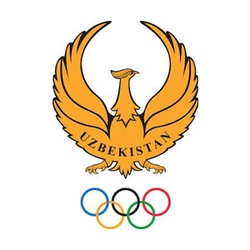The region’s cradle of culture for more than two millennia, Uzbekistan is the home to a spellbinding arsenal of architecture and ancient cities, all deeply infused with the bloody, fascinating history of the Silk Road. In terms of sights alone, Uzbekistan is Central Asia's biggest draw and most impressive showstopper.
Samarkand, Bukhara and Khiva never fail to impress visitors with their fabulous mosques, medressas and mausoleums, while its more eccentric attractions, such as the fast disappearing Aral Sea, the fortresses of desperately remote Karakalpakstan, its boom town capital Tashkent and the Nuratau Mountains.
The main industries in the country are textiles, food processing, machine building, petroleum, gold, natural gas and chemicals.
Uzbekistan is the second largest exporter of cotton in the world and the seventh largest producer of gold.
The capital is Tashkent.
The countries flag has three equal horizontal bands of blue, white, and green separated by red fimbriations with a white crescent moon and 12 white stars in the upper left side quadrant.












































































































